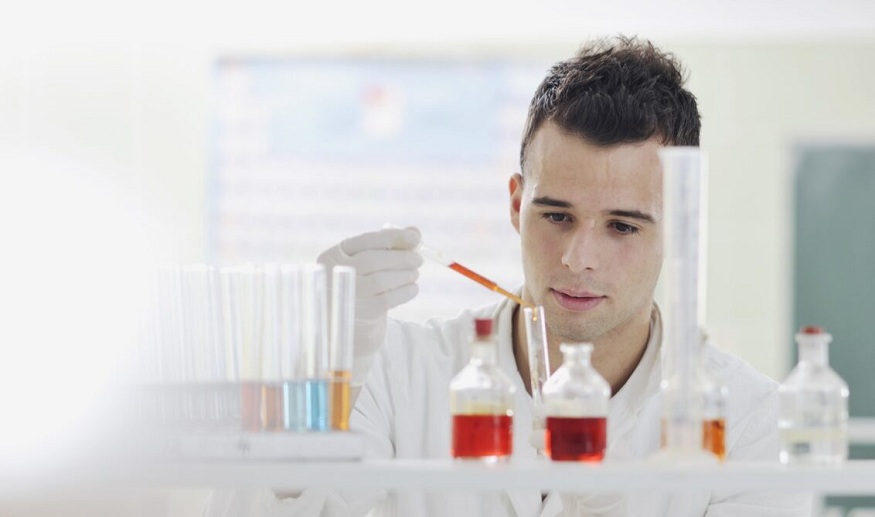Laboratory Safety and Best Practices in IB Chemistry Classes
Chemistry can be an enthralling subject, yet laboratory settings pose inherent dangers. When studying International Baccalaureate (IB) Chemistry classes involving practical experiments as the core means of grasping complex concepts, lab safety becomes even more paramount. This article covers essential measures and best practices necessary for conducting IB Chemistry experiments safely and successfully.
Un Understanding of Laboratory Environment
Chemistry laboratories can be an exciting place for discovery and learning, yet can also pose risks. To minimise these risks, understanding the lab environment is critical. Most typical lab layouts include features designed to maximize safety and efficiency such as well-ventilated areas, emergency exits, fire extinguishers, eye wash stations and safety showers – features which should be introduced as part of induction for IB Chemistry classes.
Equipment and materials form the backbone of chemistry experiments. From beakers and test tubes to chemicals and burners, each item serves a distinct purpose and requires careful handling. A lab supervisor or teacher’s role is critical here – they ensure their students know how to operate each piece of equipment as well as understand its properties.
General Laboratory Safety Rules
Safety in a chemistry lab begins with adhering to fundamental rules. Dress code plays an integral part in protecting students; lab coats, safety goggles and gloves should be worn by students to avoid chemical spills, splashes and fumes from spilling out. Footwear must fully cover both feet for optimal protection.
Handling chemicals is a daily task in IB Chemistry labs and must be approached with extreme care. Students must learn all aspects of chemical handling – understanding the properties, following proper storage procedures and being familiar with safe disposal options – in addition to understanding equipment use protocols as part of their education in operating safety and maintenance protocols.
Specific Safety Guidelines in IB Chemistry
IB Chemistry labs often involve experiments that require careful consideration of safety. Exact safety measures should be included with every experiment, including instructions for handling and disposing of hazardous chemicals. Emergency procedures also play an essential part of these labs: students must receive training on how to respond in case of spills, accidents, or medical emergencies and follow proper first aid procedures if required – thus helping minimize risks while guaranteeing prompt and effective responses in emergency situations.
Safe Laboratory Work – What are the Best Practices?
Safety lab practices go beyond simply following rules; they involve developing an attitude of precaution. Pre-lab planning is crucial: Before engaging in any experiment, students should assess potential risks and prepare accordingly – including understanding its procedures, procuring necessary materials, and making sure all safety equipment is operational and in place.
Clean and organized lab environments are crucial to safety and efficiency. Students should be encouraged to maintain cleanliness in the laboratory by labeling and storing chemicals appropriately, and maintaining clean equipment after use. Adherence to protocols and instructions must always be observed as doing so guarantees both experiment success and everyone’s wellbeing in the lab.
Incorporating Safety into the IB Chemistry Curriculum
Safety should be an integral component of IB Chemistry curriculum. Students must not only understand but internalize safety rules. By including safety lessons and assessments into their coursework, the curriculum ensures students remain exposed and reminded about its significance – regular quizzes or practical assessments may serve to reinforce concepts learned here.
Cultivating a culture of safety among students is of utmost importance, not only teaching them but also modeling safe behaviors and encouraging students to consider safety in every aspect of lab work.
Considerations for Advanced Safety Considerations
Students progressing through IB Chemistry can expect to encounter increasingly complex and potentially hazardous experiments, which will require greater knowledge of safety protocols to handle safely. Utilizing modern technology and equipment can enhance safety, providing more precise control of experiments while decreasing risks of accidents.
Maintaining high standards of lab safety requires continuous learning. This includes remaining up-to-date on current safety practices, understanding evolving chemical composition and laboratory techniques, as well as reviewing and revising protocols regularly.
Legal and Ethical Responsibilities for Businesses
Laboratory safety goes beyond good practice; it also involves legal and ethical obligations. Schools and teachers have an obligation to create a safe learning environment by meeting all safety regulations as well as adequately training and supervising students on safe practices.
Ethics are just as essential when it comes to laboratory safety. This involves conducting experiments responsibly while protecting both individuals and the environment from harm; chemical disposal should not negatively impact its surroundings, for instance.
Conclusion
Laboratory safety in IB Chemistry classes is an increasingly complex issue that encompasses numerous practices and considerations. From learning the fundamentals to incorporating safety procedures into curriculum planning, lab safety requires dedication from both teachers and students alike. By creating a culture of safety within their classes and adhering to legal/ethical standards while staying abreast of safety innovations, these IB Chemistry courses can become safe environments where students can explore all that chemistry offers them.


Leave a Reply
You must be logged in to post a comment.